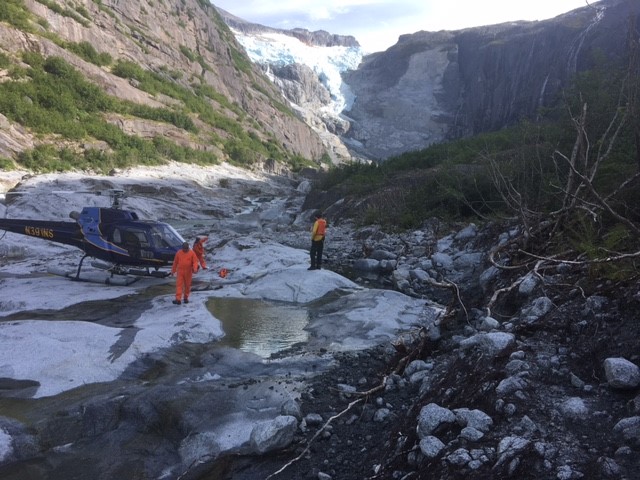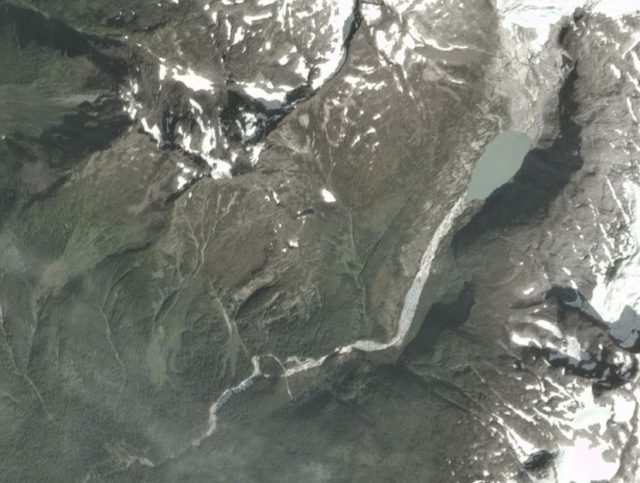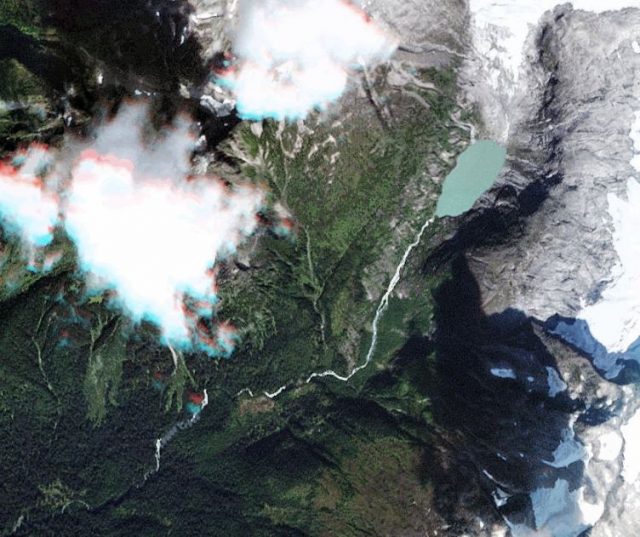12 February 2018
Juneau: a very large rockslope failure in Alaska in December 2016
Posted by Dave Petley
Juneau: a very large rockslope failure in Alaska in December 2016
KTOO has a very interesting article about a large rockslope failure that occurred at Cowee Creek to the north of Juneau on 30th December 2016. This rockslope collapse has been investigated by Rick Edwards of the U.S. Forest Service’s Pacific Northwest Research Station after it was detected as a M=3.4 seismic event. It had a volume of about 540,000 m³ according to their analysis, so was a substantial event. The rockfall descended into a lake at the foot of the slope, displacing 460,000 m³ of water. This forced a 9 m high wave down the valley, cutting a 90 m wide swathe as it went. The wave was recorded to be almost 2 m high some 13 km downstream. The wave destroyed 1,500 trees. KTOO have this image of the site, including the rockfall scar in the background and the path of the displacement wave in the foreground:-

The aftermath of the 30th December 2016 rockfall and displacement wave near to Juneau in Alaska. Image via KTOO, courtesy of Rick Edwards/United States Forest Service
.
This is a Planet Labs image of the aftermath of the rockslope failure, collected on 9th August 2017. The slope that failed is difficult to see, but the path of the displacement wave is clear in the imagery:-

Planet Labs image of the aftermath of the 30th December 2016 rockslope failure at Cowee Creek north of Juneau.
.
The timing of the slope collapse is quite interesting – this would have been the middle of winter, when the slopes were frozen. Analyses suggest that most of the very large rockslope failures in Alaska occur in the spring and early summer. For comparison, this is a 5 m resolution RapidEye image of the same area, collected on 25th August 2015, before the rockslope collapse:

RapidEye image of the site of the December 2016 rockslope failure at Cowee Creek near to Juneau. Image dated 25th August 2015, obtained via Planet Labs.
.
Reference
Planet Team (2017). Planet Application Program Interface: In Space for Life on Earth. San Francisco, CA. https://api.planet.com


 Dave Petley is the Vice-Chancellor of the University of Hull in the United Kingdom. His blog provides commentary and analysis of landslide events occurring worldwide, including the landslides themselves, latest research, and conferences and meetings.
Dave Petley is the Vice-Chancellor of the University of Hull in the United Kingdom. His blog provides commentary and analysis of landslide events occurring worldwide, including the landslides themselves, latest research, and conferences and meetings.
FYI: None of the images at the linked page https://blogs.agu.org/landslideblog/2010/10/03/continued-debris-flow-activity-in-the-wenchuan-sichuan-earthquake-area/ work!